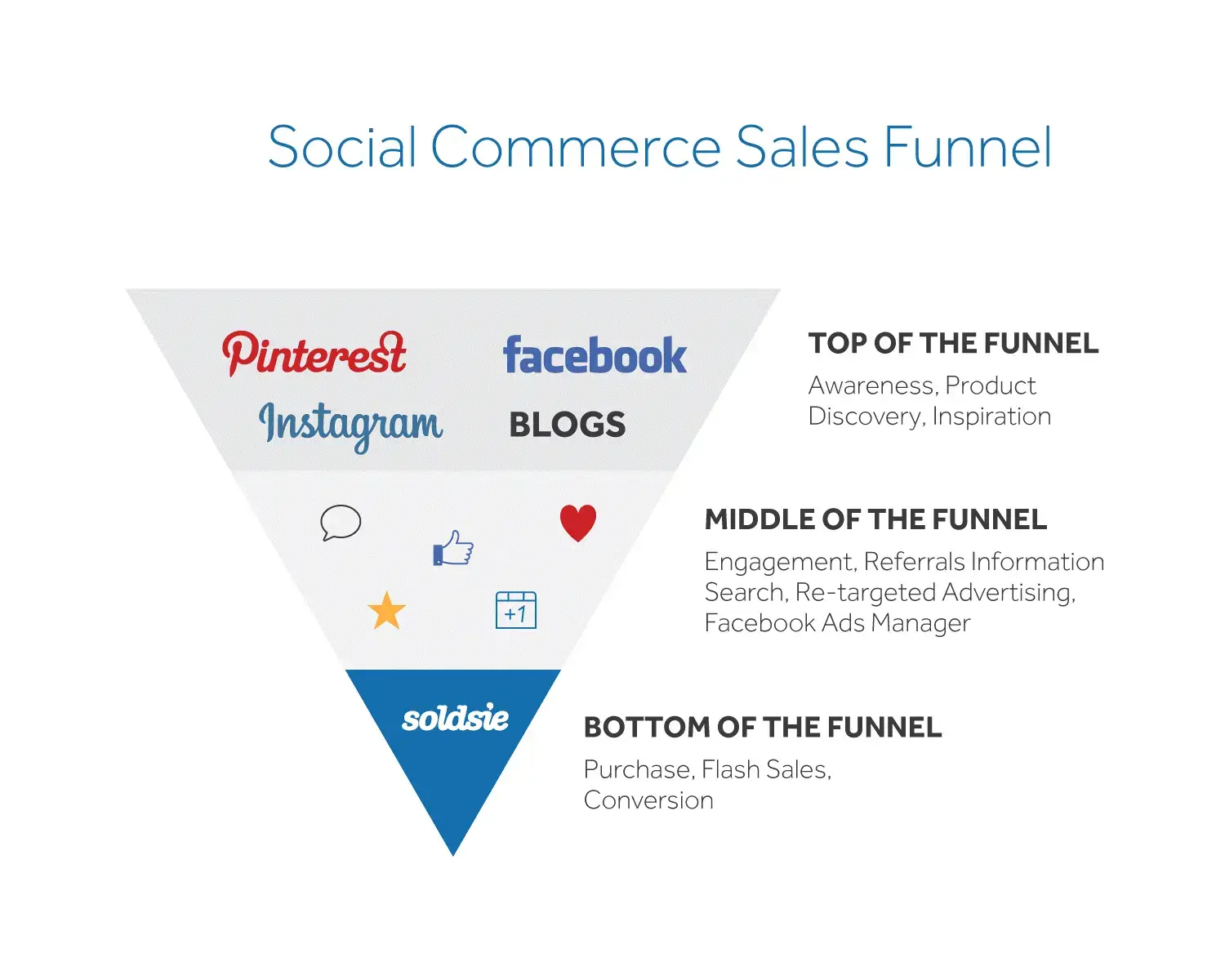The transcendence of the internet hasn’t just altered how we spend our leisure time or engage with the people we love.
The internet has revolutionized the business world and made the dream of business ownership accessible to millions for whom it would otherwise have been impossible.
Indeed, owning an eCommerce business means engaging with a truly global market, a prospective customer base that knows no geographic constraints.
In this article:
- What is Social Commerce?
- What's the difference between Social Commerce and eCommerce?
- The Social Commerce Sales Funnel
- Transforming Your Customer Experience
However, for all the enormous entrepreneurial opportunities the internet provides, there is one subsector of eCommerce that you may have yet to consider.
Social commerce is a vast and rapidly expanding eCommerce segment that leverages social media's enormous reach to drive brand awareness, relationship building, and sales.
Let’s examine the benefits of social commerce for eCommerce business owners and the strategies you can use to improve your ecommerce conversion rate.
What Is Social Commerce?
Social commerce is a strategy for marketing and selling ecommerce products wholly through social media. It leverages social media's enormous scope and popularity to galvanize brand building and drive customer acquisition and retention.
What makes social commerce unique and tremendously important is simply its scale. It’s estimated, for example, that more than 4 billion people worldwide regularly use social media, which is more than half the global population.
Social commerce takes advantage of the breathtaking scale of social media use by connecting business owners and brands with prospective and established customers on social media platforms.
Social commerce allows users to be made aware of new companies, products, and services, research those new finds, and even complete a purchase without ever leaving the social media site.
Not only does this accelerate the sales lifecycle, but it can also dramatically increase conversions.
The capacity of social media to increase conversions is evident when you consider the top four platforms for social commerce.
Currently, the most popular social media platforms globally are also the platforms that are blazing the trail for social commerce.
Facebook, Instagram, Pinterest, and TikTok are the undisputed leaders in the social commerce sector — with the market expected to generate nearly $3 trillion in revenues by 2026.
Unsurprisingly, millennials and Generation Z, those quintessential digital natives, drive this trend.

Custom image created in Canva
What’s the Difference Between Social Commerce and eCommerce?
While there’s a lot of overlap between social commerce and eCommerce, the differences are fundamental and essential.
Social commerce is, in fact, a subset of eCommerce.
It means that all forms of social commerce are eCommerce, but not all eCommerce is social commerce.
In its most traditional form, eCommerce involves marketing and selling goods and services on discrete branded sites. It might be a virtual storefront hosted on a commercial platform such as Shopify or a unique business website with online purchasing capabilities.
But social commerce is a particular form of eCommerce that doesn’t connect to a branded website or webpage.
Social commerce does not require consumers to navigate away from the social media sites they are using to research or purchase a product.
Instead, through social commerce, consumers can be alerted to a company, product, or service via social media posts.
When they find something piques their interest, they can learn more about the brand by clicking the social media post and being redirected to the company’s social media pages.
Or, if the post makes the product seem simply too good to resist, consumers can forgo the research process and skip straight to the “buy now” option.
Many social commerce platforms, such as Instagram and Facebook, allow consumers to instantly make purchases through their portals simply by clicking a link.
The Social Commerce Sales Funnel
In addition to the incredible access to consumers that social commerce provides, it also fosters revenue growth by making the sales funnel more efficient.
Unlike traditional eCommerce, where the consumer must actively seek out a company’s branded site or pages, social commerce brings the virtual storefront to the customer’s social media.

The social commerce sales funnel is often significantly more efficient than traditional eCommerce. Because you can promote, research, and purchase products directly on social media, consumers can move more efficiently from consideration to conversion.
This is where learning how to connect your online store to social networks could make all the difference to your sales figures.
By integrating multiple social platforms directly into your ecommerce site, you're not just meeting your customers on their preferred platforms you're also bringing the virtual store to them.
It significantly simplifies and expedites the customer journey and, in the process, transforms the way that brands engage their target audience and expand their customer reach.
The simplification of the social commerce sales funnel is also a significant benefit for entrepreneurs who seek to make the best and more profitable use of limited resources. Securing funding for small businesses can be a formidable challenge.
It’s particularly true for groups historically underrepresented in business ownership, such as women and veterans.
Social media pages and promotions can often be sufficient to generate enough conversions to make the business thrive.
Because creators can market and sell their products directly through social media, entrepreneurs no longer have to invest substantial sums in traditional marketing.
Social commerce can also enable business owners to forgo creating a dedicated website or virtual storefront.
![]()
Source: Pixabay
Transforming the Customer Experience
One of the most exciting aspects of social commerce is the capacity to revolutionize how businesses and consumers interact.
It enables entrepreneurs to prioritize the overall customer experience and use customer feedback to devise innovative and effective customer-driven content.
Savvy business leaders can cultivate a deep understanding of their market base through robust social media engagement.
However, such direct contact is only half the story. Just as significant are the comprehensive and timely data you can glean from social media through data analytics powered by artificial intelligence (AI).
AI technologies offer an unprecedented capacity to collect vital information regarding customers' online behaviors.
Then you can convert this information through AI automation into visual artifacts providing critical financial and operational insights within a single image.
Through these infographics based on social media analytics, business owners can cultivate a depth of insight into their target market that would once have been unthinkable.
That, in turn, translates into the development of targeted, evidence-based marketing campaigns and product and service innovations.
Social commerce entrepreneurs, in other words, use their platforms not only to market their products but to increase brand awareness and make sales.
They also use them to learn about their customers and to align their business strategies to meet and exceed the ever-evolving expectations of their target market.
The Takeaway
Social commerce may be the future of eCommerce. By leveraging the power of social media, online entrepreneurs can reach a global market base.
Social media analytics ensure businesses provide customers with an exceptional experience.
The more efficient sales funnel and high conversion rates can decrease operating costs while opening the world of entrepreneurship to those who might otherwise lack funding to succeed.


